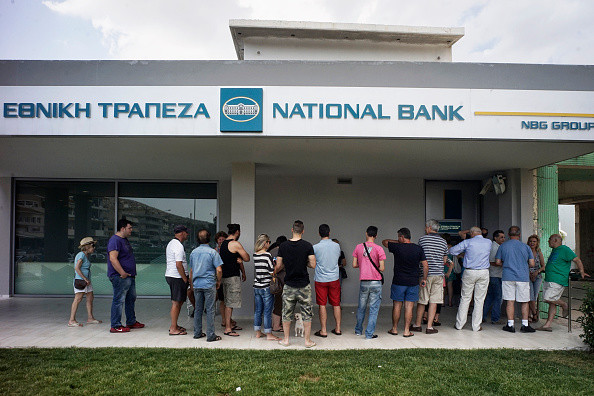Standard & Poor's downgrades four major Greek banks as debt crisis continues

Ratings agency Standard & Poor's has piled on the misery for Greece's dilapidated economy by slapping downgrades on four of the country's major banks.
S&P now rates Alpha Bank, Eurobank Ergasias, National Bank of Greece and Piraeus Bank as being in "selective default".
In a statement it said: "The rating actions reflect our opinion that private individuals' lack of access to their deposits on a timely and in-full basis, and the constraints to their ability to transfer funds, constitute a selective default under our criteria."
Fellow ratings firm Fitch also downgraded the banks yesterday (29 June).
S&P also believes it is inevitable that Greek banks will default within six months without support from EU authorities, adding "we do not anticipate such support will be forthcoming".
Last week the European Central Bank (ECB) capped its funding to the country's banking system under its Emergency Liquidity Assistance (ELA) programme after talks aimed at averting a default on sovereign debt broke down.
Talks are ongoing as Greece faces a race against time to unlock funds to pay down €1.6bn (£1.1bn, $1.8bn) in IMF debt by 11pm (BST) tonight.
"In our opinion, this has left the Greek banks with very limited liquidity buffers to cover their upcoming needs, taking into account the large deposit withdrawals they have experienced in recent weeks," S&P said.
As a result of the ELA cap, Greek Prime Minister Alexis Tspiras's left-wing Syriza government imposed capital controls, a week-long bank holiday and ordered the domestic stock market to close. It has resulted in long queues outside ATMs as Greeks scramble to withdraw cash. No withdrawals exceeding €60 are allowed per day but many cash machines have already run dry.
Experts have previously warned that Greek banks could become insolvent if the ECB decides to suspend ELA.
© Copyright IBTimes 2025. All rights reserved.






















